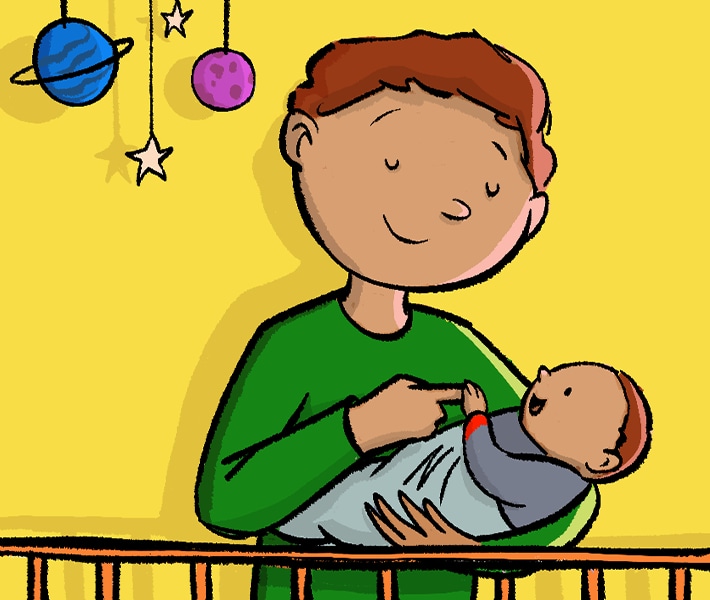The immunisation schedule is carefully designed to provide protection at just the right time.
1. Ideal timing
Like all good babyproofing plans, CDC’s recommended immunisation schedule is safe and effective at protecting your baby. It’s based on how your child’s immune system responds to vaccines at various ages, and how likely your baby is to be exposed to a particular disease. This ensures your little one is protected from 14 potentially serious diseases at exactly the right time. On the other hand, there is no data to support that spacing out vaccines offers safe or effective protection from these diseases.
So who looks at all the research and data to know what timing and doses are best? Hundreds of the country’s top doctors, public health professionals, and scientists design the schedule to ensure it is safe and effective.
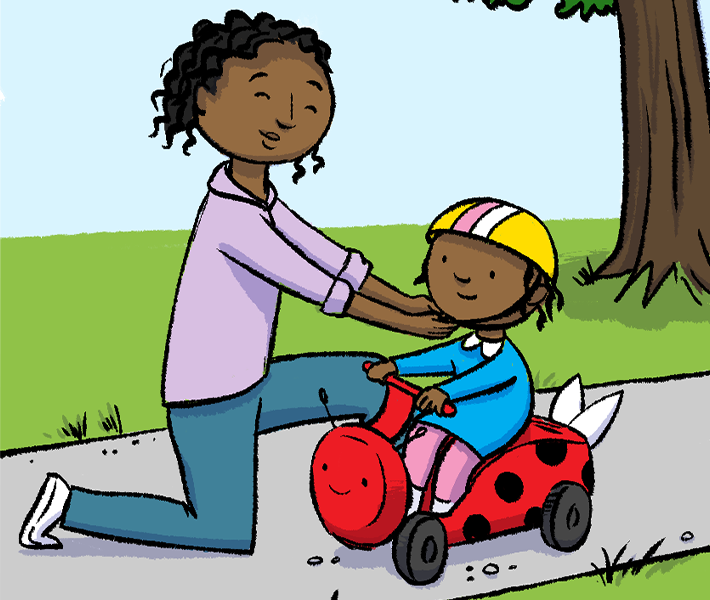
While babies are born with some immunity, they have not yet built up the necessary defenses against the diseases that vaccines prevent.
2. Prevent complications
Delaying vaccines could leave your child vulnerable to disease when she’s most likely to have serious complications.
Think of vaccines like a helmet for your baby. Just like safety equipment protects her from serious injury, vaccinating on schedule protects her from potentially serious diseases.
Young babies are at highest risk of serious disease complications. For example, for you, whooping cough may mean a lingering cough for several weeks, but it can be very serious—even deadly—for babies less than a year old. If you delay vaccinations, your baby could be exposed to diseases like whooping cough when she is most likely to have serious complications.
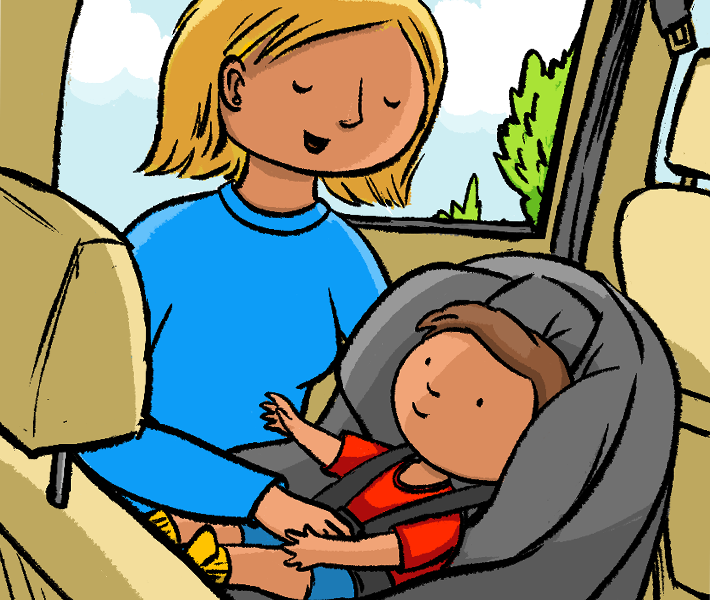
It can take weeks for a vaccine to help your baby make protective disease-fighting antibodies, and some vaccines require multiple doses to provide best protection.
3. Early protection
It’s best to vaccinate before your child is exposed to dangerous diseases.
You wouldn’t wait until you’re already driving down the road to put your baby in a car seat. You buckle him in every time, long before there is any chance he could be in a crash. Vaccines work the same way—your baby needs them long before he is exposed to a disease.
If you wait until you think your child could be exposed to a serious illness – like when he or she starts nursery or during a disease outbreak – there may not be enough time for the vaccine to work. That’s why the experts who set the schedule pay such careful attention to timing. They have designed it to provide immunity early in life, before children are likely to be exposed to life-threatening diseases.
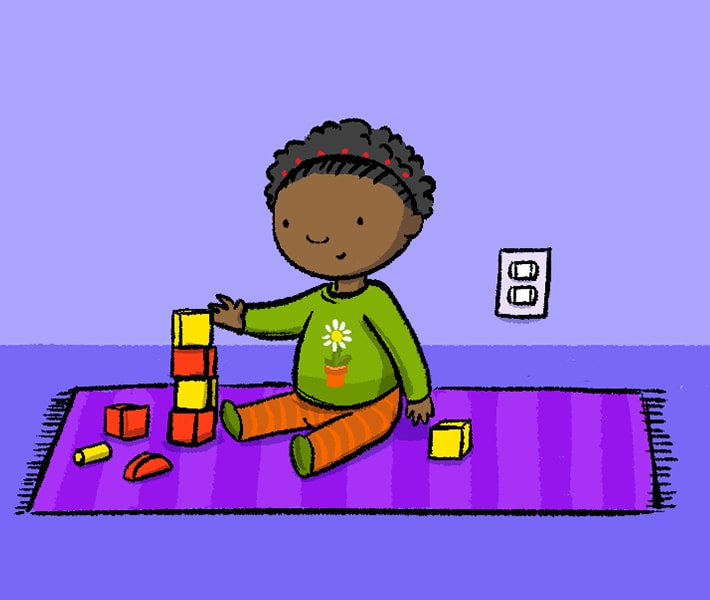
Children won’t have the best protection from 14 serious diseases until they get all the recommended doses of each vaccine.
4. Best Protection
Your child isn’t fully protected if you cover just a few of the outlets she can reach around your home. Similarly, your baby won’t have the best protection from vaccines until she has all the recommended doses.
Each vaccine is carefully developed to protect against a specific illness. Some require more than one dose to build strong enough immunity to protect your baby, or to boost immunity that decreases over time. Others need additional doses to ensure your baby is protected in case the first dose didn’t produce enough antibodies. Your child needs the flu vaccine each year because the disease changes over time. Simply put, every recommended dose of each vaccine on the schedule is important.

Breastfeeding provides important protection from some infections as your baby’s immune system is developing. However, breast milk does not protect children against all diseases.
5. Long-term protection
Maternal antibodies and breastfeeding don’t provide enough protection.
Just as you help your child learn to walk, the protection (antibodies) you passed to your baby before birth will help protect your little one from diseases during the first months of life. And just as your child needs to eventually walk on his own, his immune system eventually needs to fight diseases on its own. Vaccines help protect your child when your maternal antibodies wear off.
For example, when you get whooping cough and flu vaccines while you’re pregnant, you can pass some protection to your baby before birth. However, you can only pass on protection from diseases that you have immunity to, and this can only protect your child in the first few months.
Breastfeeding provides important protection from some infections as your baby’s immune system is developing. However, breast milk does not protect children against all diseases. Even for breastfed infants, vaccines are the most effective way to prevent many diseases. That’s why it’s so important to follow the immunization schedule. It ensures your baby’s immune system gets the help it needs to protect your child long-term from preventable diseases.
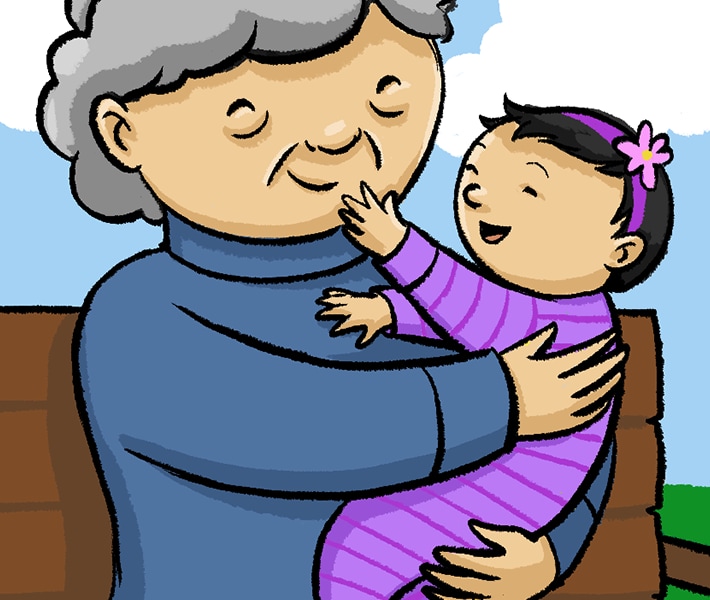
Not vaccinating your child on time can make someone else sick.
6. Spreading illness
Children who are not vaccinated on schedule are not only at risk of getting sick themselves, but they can also spread illness to others who aren’t protected, like newborns who are too young for vaccines and people with weakened immune systems. By getting your child’s vaccines on time you’re not only protecting your baby — you’re helping to protect your friends, family, and community, too.
On-time Vaccination: The Ultimate Babyproofing Plan
Most parents vaccinate their children according to CDC’s recommended immunisation schedule, protecting them from 14 potentially serious diseases before their second birthday. Vaccinating children on time protects them and anyone around them with a weakened immune system.
